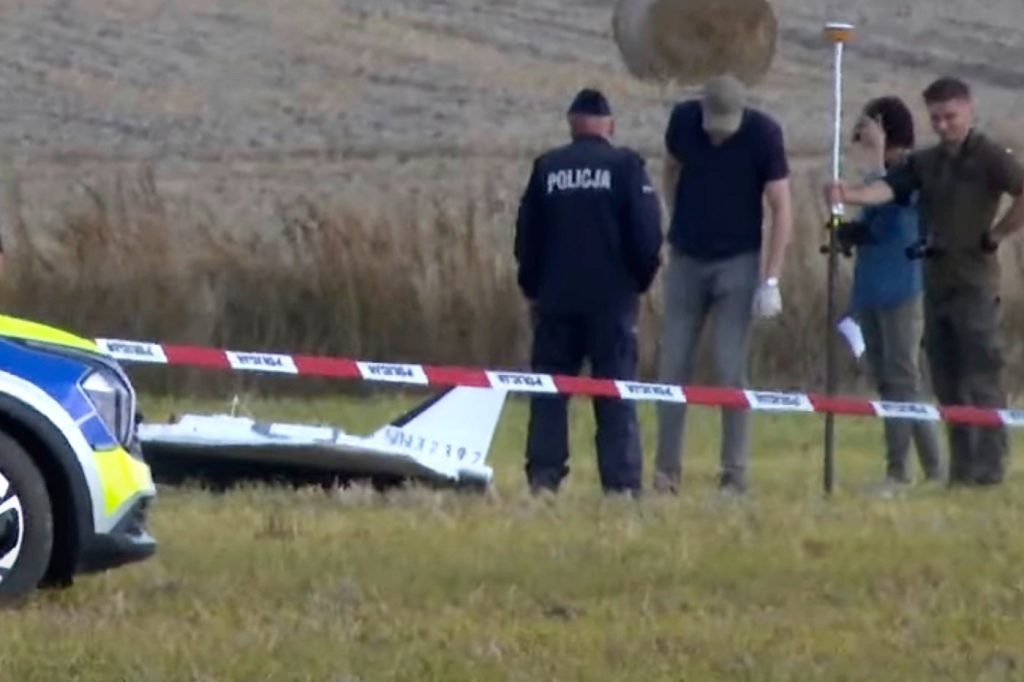WARSAW, Poland (AP) — The recent downing of Russian drones over Poland marked the first direct confrontation between NATO forces and Moscow since the onset of the war in Ukraine, raising critical questions regarding the alliance's preparedness against escalating Russian hostilities. Polish military forces, bolstered by support from allied nations, intercepted multiple Russian drones that intruded into Polish airspace overnight, with some reportedly launched from Belarus. Although minor airspace violations had occurred previously since Russia's invasion of Ukraine in 2022, the latest incursions were deemed significantly more perilous.
During the drone swarm, at least one residential home in eastern Poland sustained damage, prompting emergency consultations under NATO’s Article 4, which calls for discussions among member nations in response to perceived threats. "There is no doubt that from Poland’s point of view, this provocation is incomparably more dangerous than all previous ones," stated Polish Prime Minister Donald Tusk in parliament. He underscored that the situation has brought Europe closer to open conflict than it has been since World War II.
According to Russia's Defense Ministry, its drone strikes were targeted at military-industrial facilities in western Ukraine, claiming that no deliberate targets in Polish territory were designated. Belarus, a key ally of Russia bordering both Poland and Ukraine, asserted that it monitored the drones, which allegedly "lost their course" due to electronic jamming.
The drone incursion unfolded over a seven-hour span, commencing around 11:30 PM on Tuesday and concluding just after dawn. Prime Minister Tusk reported that drone components were found in nine locations deep within Poland, with one instance causing the roof of a house in the Lublin region to be destroyed; fortunately, no casualties were reported. For the first time in the ongoing conflict, several drones appeared to have originated directly from Belarus, leading to temporary airspace closures and flight suspensions at Warsaw’s international airport.
The significance of this incident and NATO's response has amplified fears that the war in Ukraine could potentially escalate further, a sentiment shared across Europe as Russia intensifies attacks while peace negotiations falter. NATO air defense units supported Poland's efforts, with spokesman Col. Martin O’Donnell indicating that this was the first occasion NATO aircraft had engaged potential threats within Allied airspace. Polish military officials characterized the drone incursions as an "act of aggression," with Tusk condemning the event as a large-scale provocation.
Poland's allies responded promptly during the incident. Tusk disclosed that the Polish air force was operational with the aid of Dutch F-35 fighter jets, while allied radar systems assisted in tracking the drones’ locations. The Polish Defense Ministry noted that the supporting forces included F-35 and F-16 fighter jets and Black Hawk helicopters, in addition to Soviet-manufactured Mi-24 and Mi-17 helicopters. "Our system was truly overwhelmed this night," stated Lt. Col. Jacek Goryszewski, a spokesman for the Polish armed forces, confirming that information was exchanged throughout the night with Ukrainian and Belarusian authorities.
The drone incident garnered immediate backlash across Europe, with numerous leaders expressing their belief that it was a calculated act by Russia. German Defense Minister Boris Pistorius insisted there was “definitely no grounds to suspect that this was a course correction mistake,” reinforcing the notion that the drones were intentionally diverted. French President Emmanuel Macron called for Moscow to cease its “reckless escalation,” while Czech Prime Minister Petr Fiala labeled the assault as a test of NATO’s defenses. Ukrainian President Volodymyr Zelenskyy described the violation as an “extremely dangerous precedent,” urging allies to respond decisively, and NATO reiterated its obligation to defend every inch of its territory.
Additionally, Dutch Prime Minister Dick Schoof termed the incident "unacceptable," praising Dutch F-35s for their support and emphasizing that it further demonstrated the threat Russia’s aggression poses to European security. In the UK, Defense Minister John Healey noted that he had requested a review of options to bolster NATO air defenses over Poland, calling the attacks “reckless” and an infringement on NATO airspace and sovereignty.












